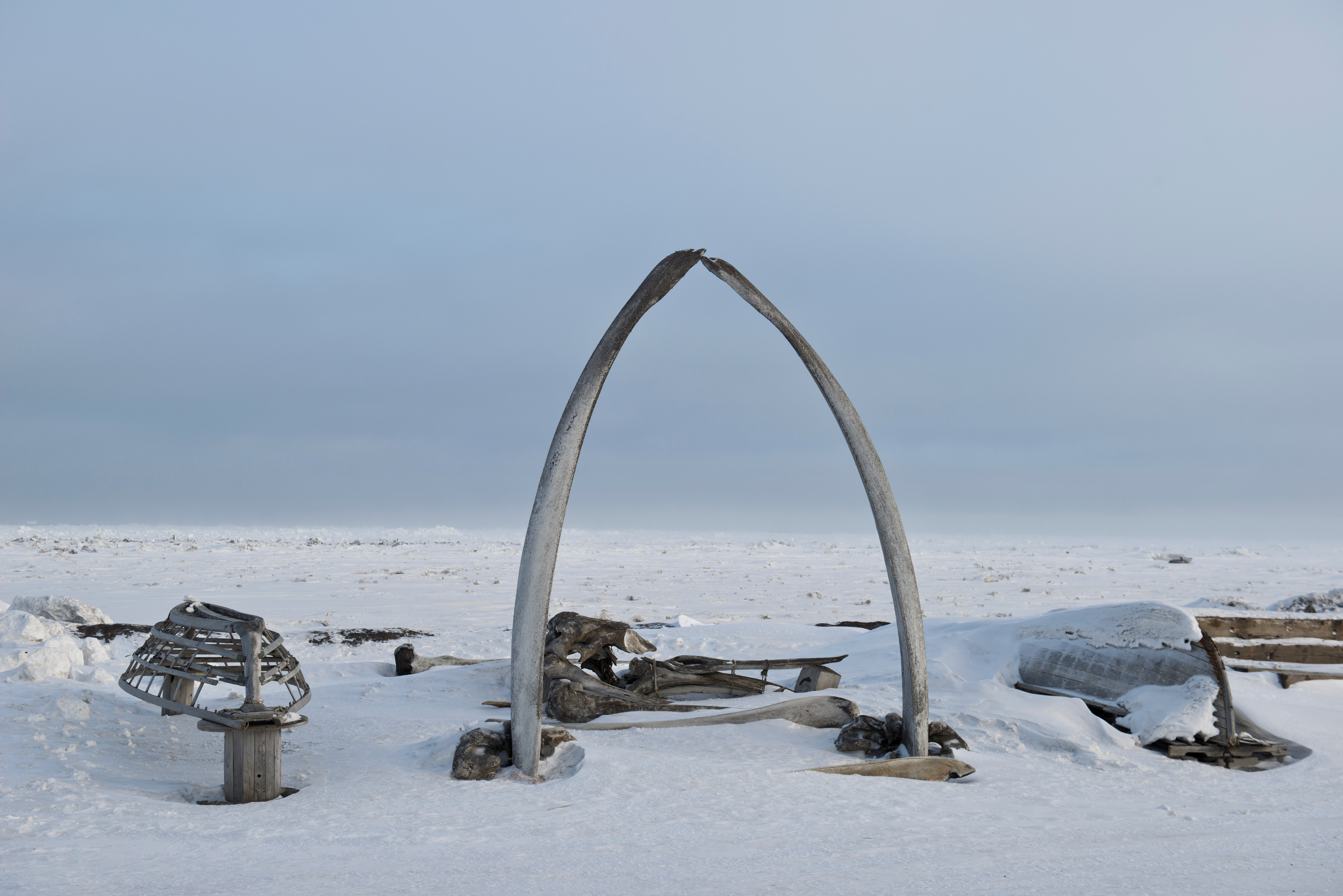Town formerly known as Barrow already in court over new name of Utqiaġvik

The town formerly known as Barrow began Thursday with something old-yet-new and full of promise, a return to the traditional name of Utqiaġvik.
But it might not stick. It might not even be the right name. Already a court complaint has been filed to block the city from using Utqiaġvik.
The Native corporation for the community, Ukpeaġvik Iñupiat Corp., filed a case in Barrow Superior Court late Wednesday seeking to halt the changeover and asking for a quick decision.
The name change to Utqiaġvik was approved by voters Oct. 4 in a tight vote with 381 in favor and 375 against it. Lt. Gov. Byron Mallott last month signed the official order renaming the city, effective Dec. 1.
Officials went ahead on Thursday with an emotional but rushed ceremony to mark its first day. They were expecting a 2 p.m. decision on the court challenge only to find the case had been reassigned out of Barrow. A Kotzebue judge late Thursday declined to rule immediately.
The Native corporation argued in court filings that procedures for public notice and due process weren’t followed and that the new name isn’t even the traditional one.
The community’s ancient name is Ukpeaġvik, for place to hunt snowy owls, not Utqiaġvik, for place to gather wild roots, the village corporation, UIC, asserted in a memorandum filed in court.
Ukpeaġvik “is also the name of their company,” noted Qaiyaan Harcharek, the city council member who sponsored the ordinance leading to the change.
He said he is disappointed that his village corporation is spending money to take the matter to court. He said he never anticipated it wouldn’t want the chosen Native name.
“We are just dumbfounded on this idea they are fighting that,” Harcharek said.
Efforts to reach UIC officials on Thursday were unsuccessful.

Both Harcharek and UIC point to interviews and talks from a 1978 elders conference as evidence that support their opposing views.
In its court filings UIC quotes a Iñupiaq elder, Shirley Phillips: “So this land here used to be a place for hunting owls.” She continued that later generations “forgot the word Ukpeaġvik more and more, till finally they turned it inside out and caused it to become Utqiaġvik.”
That refers to one small area, Harcharek said. Barrow people never say they are from the “place where we hunt snowy owls,” he said. Everyone knows Ukpeaġvik — sometimes spelled Ukpiaġvik — as an old settlement near where Arctic Pizza now sits.
The greater Barrow area is well-known as Utqiaġvik, he said, pointing to old sources with differing spellings fashioned by non-Natives trying to document an oral language.
To English speakers, the words look similar but in Iñupiaq, the base words are very different, Harcharek said.
“One’s a root and one’s an owl,” he said.
The city of Utqiaġvik is officially embracing its new name, Mayor Fannie Suvlu said. It intends to hold a contest for a new city logo and seal. Residents will be able to pick their favorite on Facebook, she said.
Once the city council enshrines the new seal and logo in city law, the mayor said, signs will be changed — unless the city is blocked by the lawsuit.
“Good afternoon, city of Utqiaġvik,” a city employee said in answering the phone.
The new name is pronounced, roughly, oot — kay-ahg — vik, with guttural back-of-the-throat sounds for the representative “k” and hard “g” in the middle.
[Barrow’s new name is its old one, Utqiaġvik. Local Iñupiaq leaders hope its use heals as it teaches.]
Still, the mayor introduced an ordinance at Tuesday’s city council meeting calling for a new election to give voters a chance to repeal it.
Many residents at a mid-November town hall meeting on the name change spoke up against it and said they didn’t get ample notice of such a big change, Suvlu said. A public hearing on the measure will likely be set for January, she said.
The controversy and the proposed repeal justify blocking the change, UIC argued in its court filings. The corporation said it hasn’t found evidence that the city properly gave notice to the public when it acted earlier to put the measure on the ballot.
Harcharek said there was ample public notice.
The community’s Wikipedia entry shows some of the confusion. For a brief time Thursday, it was listed under Utqiaġvik, then moved back to Barrow with a description that said it is also known as Ukpiaġvik.
A decision on UICs request to temporarily block the new name right away was supposed to have been made by 2 p.m. Thursday.
UIC argued putting a new name on city buildings, vehicles and signs will be expensive and shouldn’t be allowed to go forward unless it is upheld by a judge. Former North Slope Borough Mayor Charlotte Brower suggested in a statement filed in court that the city could lose millions in grants earmarked for Barrow during the conversion.
The judge initially appointed to hear the case brought by UIC, the village corporation, had to step aside because he was present at the town hall meeting.
Late Thursday afternoon, Kotzebue Superior Court Judge Paul Roetman ruled against UIC’s request for quick action. The city needed more time to prepare and UIC wouldn’t be immediately harmed, he said. He set a hearing date for Dec. 14 for both sides to air their cases.
The ceremony at city council chambers was powerful, Harcharek said.
“It was a unique and historic moment that was very emotional and touched every one of us in the room,” he said. “That we were at this point in our life where we claim our ancestral name.”